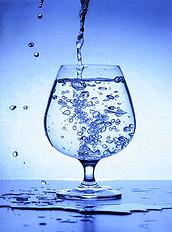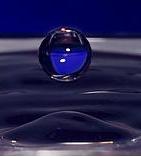|
Dehydration of the human body
Dehydration means your body does not have as much water and fluids as it should. At the first glance, water doesn’t seem to contribute much to your health. After all, it has no vitamins. No fibre. No protein. No carbohydrates. Therefore why is pure water so integral to health? Water is the biggest part of what we are, quite literally. Our body is comprised of more than 60% water. Despite this, one of the most widespread and frequent ailments affecting our society is dehydration. Fluid loss may be sometime severe enough to become life-threatening. In humans, dehydration can be caused by a wide range of diseases and states that impair water homeostasis in the body. Some of the causes could be just as simple as: People perceive that they are too busy to drink water. They don't want to waste time with the very normal process of urination. In addition some people hate the taste of water. The loss in body fluids symptoms are:
In people over age 50, the body’s thirst sensation diminishes and continues diminishing with age. We've all learned that fluid replacement is critical to replace fluids lost when exercising, but drinking pure water exclusively isn't the safest choice for those who participate in very strenuous or long-duration exercise. Headaches Headaches usually come from the tissues surrounding the brain. There are some observations about a possible connection between not drinking enough water and getting headaches. Dehydration symptoms are usually easy to determine, dry mouth, weakness, dry skin when it usually is oily (of course some people normally have dry skin), low blood pressure, headaches, dizziness is also a sign or symptom of dehydration. Water is an essential nutrient, the nature's best diuretic, and the most efficient detoxifying agent in the human metabolism. It is the simplest element on Earth and the resolution to acidity excess of the human body in conditions of stress.
Oxygen is 89% constituent of the water, 21% of the air and 46% of the earth. Oxygen and water are the fundamental elements of nature. Their balance produces freshness, energy, and it is the most important component in improving the quality of life. Fluid loss in the human body raises functional oxygen shortages. Everyone when not making a self conscious effort stay in a state of mild water deficiency. Fluid loss stresses our metabolic pathways, and in particular amplifies the acidosis of the body caused by stress, our food and our environments. A simple solution for the metabolic problems of water deficiency and acidosis is a habit of drinking plenty of liquids. Dr. Ali Majid in his article "Water Therapy" said: "The human body is a water pond in which float all human cells. When a drought lowers the water level in a pond, all pond life suffers; many life forms die. Chronic dehydration does the same to human tissues and cells. This is not melodrama. It is a simple truth. Is there any disease in which water dysregulation does not play a role? The answer is none. Consider the following: The primary difference between a young and an aged cell is that the aged cell is dehydrated and shrunken. The primary difference between a vigorous and a tired cell is that the tired cell is dehydrated and shrunken. The primary difference between a healthy and a toxic cell is that the toxic cell is dehydrated and shrunken." Is there any illness in which dehydration does not play a role? The answer is none. Consider the following: Every cell, tissue, organ, and nearly every life-sustaining bodily process requires water. Body temperature relies on well-hydrated body with water acting as our insulator in cold environments, and our cooling mechanism by perspiration when we overheat. Hydration allows us to freely move our joints, and acts as a protective cushion for tissues and organs. A well-hydrated body also ensures our eyes are lubricated; our skin is clear and taut, and mucous membranes, like those in the nasal cavity, remain an effective barrier against common illnesses like cold and flu. In each of these processes, the water in our bodies is used and depleted, meaning, we must replenish our internal supply of water regularly. In the brain cells, water generates energy; coffee only releases it for brief periods. Water is the finest tissue detoxifier and the best diuretic. It is also the first enhancer of enzyme functions of energy, detoxification, digestive, and neurotransmitter systems and the best antidote for acidotic stress.
What are those reasons? All cells contain micro channels of H2O that make possible the traffic of substances and nutrients among cells.
Indeed, no life processes are possible without water. Optimal hydration robust bowel ecology facilitates the transit and provides production of digestive fluids as well as for the digestive-absorptive functions.
Chronic dehydration of varying degrees is present in most people today. Chronic anger is dehydrating. And so is stress. Coffee dehydrates. Nearly all of our elderly are on drug therapies that cause water deficiency to varying degrees. Diuretics are widely used without any consideration given to their dehydrating effects. Indeed, all those who do not undertake special measures to assure optimal hydration are likely to be dehydrated often during the day. By adding few drops of Oxygen Elements Max to your daily liquid, these molecules of pure oxygen and hydrogen are going to work right away in the cells to empower all cell functions, including the release of cellular toxins. Click here for the page Health Supplements! or click the image at right (will open in a new window) to visit O Zone website, the place where you can purchase Oxygen Elements Max.From Dehydration return to the page Oxygen Review
|





